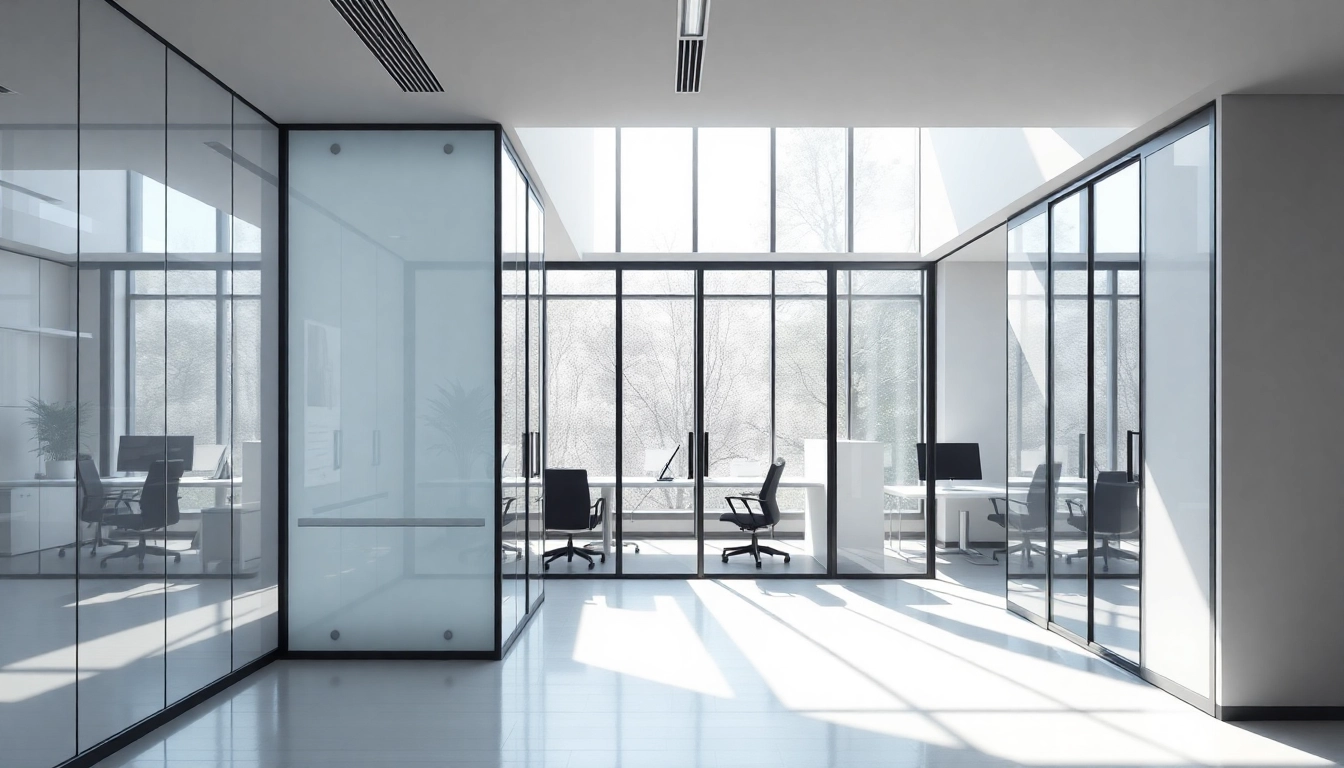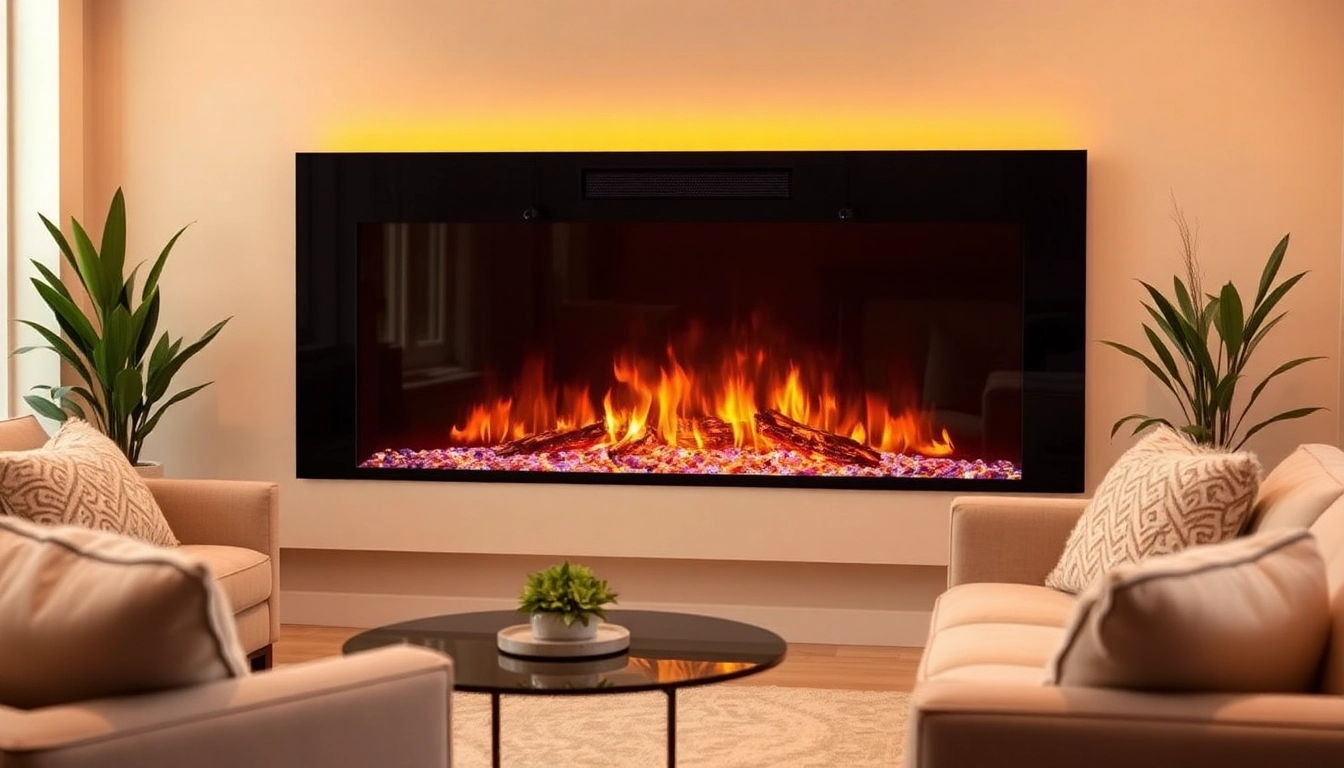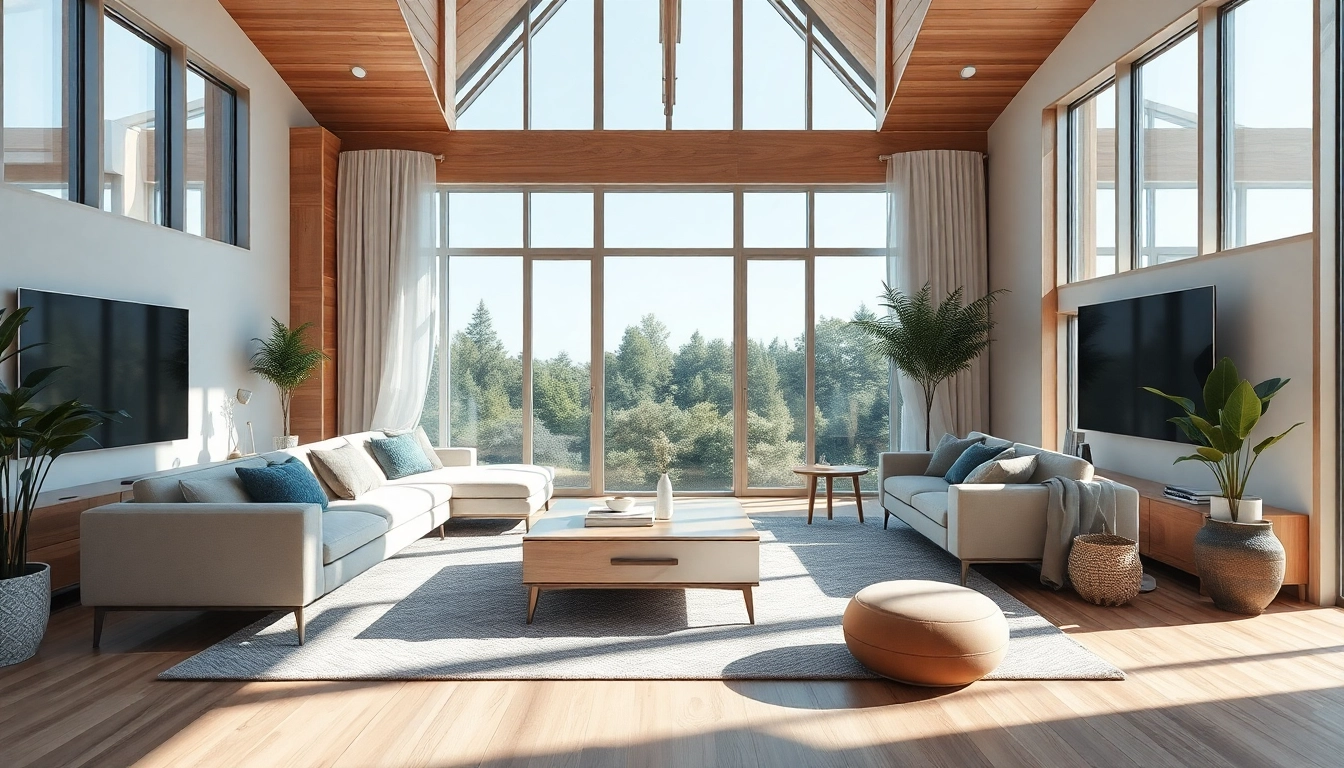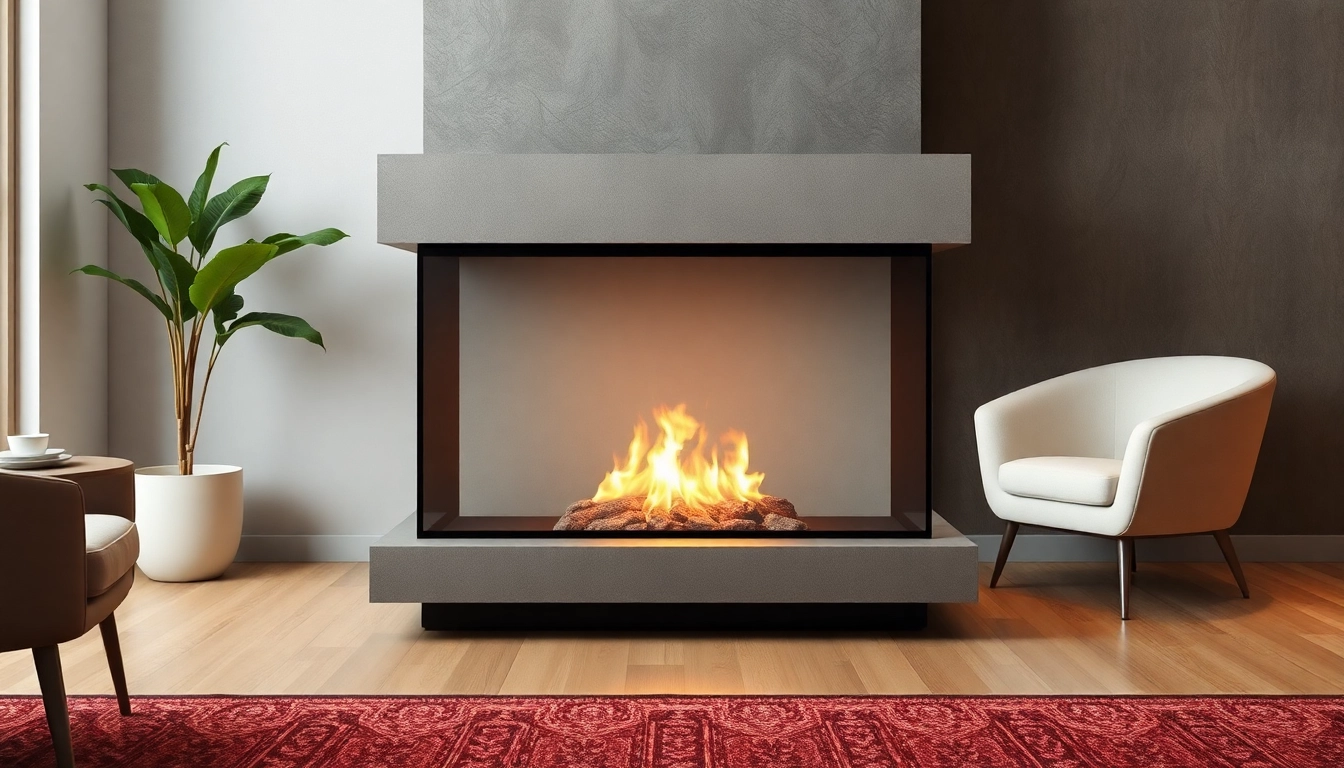Understanding Movable Glass Partitions
What Are Movable Glass Partitions?
Movable glass partitions are innovative solutions designed to enhance spatial flexibility in a variety of environments, including offices, conference rooms, and even residential spaces. These partitions allow for the creation of adaptable interior layouts by enabling the division of large areas into smaller, discrete spaces or vice versa. Typically mounted on tracks, these partitions can slide open or closed with ease, providing users with the flexibility to modify their environment according to their needs.
These systems can range from simple glass panels to sophisticated, high-tech solutions that incorporate advanced mechanisms and acoustic insulation features. Through this versatility, movable glass partitions are increasingly becoming popular in urban architecture, interior design, and corporate workspace layouts.
Benefits of Using Glass Partitions
There are numerous benefits associated with the use of movable glass partitions:
- Spatial Flexibility: Easily reconfigure your spaces for various functions such as meetings, presentations, or collaborative work without the need for permanent structures.
- Enhanced Natural Light: Glass partitions allow natural light to permeate through areas, which can improve mood and productivity for occupants, creating a more inviting atmosphere.
- Sound Insulation: Many modern glass partitions come with acoustic properties that help maintain privacy by reducing sound transmission between spaces, making them ideal for workplaces and businesses that require focus and confidentiality.
- Aesthetics: Their sleek and modern appearance can enhance the aesthetic value of any space, making them suitable for stylish office designs, retail environments, and other commercial settings.
- Cost-Effective: In the long run, movable glass partitions can be more economical than traditional construction, reducing expenses related to reconfiguration and extensive renovations.
Common Applications in Various Settings
Movable glass partitions can be employed in numerous settings:
- Corporate Offices: Many businesses use these partitions in conference rooms, break areas, or open-plan offices to create versatile, collaborative workspaces.
- Hospitality: Hotels and restaurants utilize movable glass partitions to create private dining areas or flexible event spaces that can be adjusted depending on guest needs.
- Retail Spaces: Retail environments can adapt to changing merchandise displays or seasonal trends, with glass partitions providing an elegant solution.
- Healthcare: Clinics and hospitals can enhance patient privacy with glass partitions in waiting areas, examination rooms, or therapy spaces.
Types of Movable Glass Partitions
Frameless vs. Framed Glass Systems
Movable glass partitions come in two primary styles: frameless and framed. Frameless systems lend a contemporary look, with glass panels that connect seamlessly and provide an unobstructed view. These are particularly favored in high-end commercial settings, where design aesthetics are paramount.
In contrast, framed systems feature a lightweight frame around each glass panel, providing additional support and enhancing durability. This style is often chosen for spaces requiring increased structural integrity or where acoustic performance is prioritized.
Single and Double Glazed Options
Movable glass partitions also vary based on their glazing options:
- Single Glazed: This option typically consists of a single panel of glass, offering an economical solution appropriate for environments where direct sound insulation is less of a concern.
- Double Glazed: This configuration provides enhanced sound insulation and thermal efficiency through two panes of glass separated by an air gap. Double glazed systems are ideal for professional setting where comfort and privacy are key priorities.
Acoustic Performance of Glass Partitions
One of the standout features of modern movable glass partitions is their potential for sound insulation. Most partitions are designed to meet specific sound transmission class (STC) ratings, indicating how effectively they can block sound between rooms. For example, units with an STC rating of up to 50 can reduce noise transmission significantly, making them suitable for conference rooms, offices, and other environments that require auditory privacy.
These performance metrics make glass partitions not just aesthetic choices but practical solutions for improving a space’s functionality and comfort. Consulting with manufacturers to understand specific sound performance can help in selecting the ideal system for your needs.
Installation and Maintenance Considerations
Key Factors for Successful Installation
The installation of movable glass partitions requires careful planning and execution to ensure optimal functionality. Here are some crucial factors to consider:
- Structural Support: Depending on the type of glass partition, ensure that the necessary wall structures can support the weight and installation method of the panels.
- Precision Measurements: Accurate measurements are essential to ensure that panels fit correctly and operate smoothly, avoiding gaps and misalignments.
- Professional vs. DIY Installation: While some businesses may attempt DIY installations, using professionals can guarantee that the partitions meet safety standards and perform optimally.
Routine Maintenance for Longevity
Maintaining movable glass partitions is crucial to prolonging their life and keeping them looking good. Regular cleaning with appropriate glass cleaners, checking track systems for debris, and ensuring that seals remain intact are important tasks. Additionally, periodic inspections can help identify potential issues before they develop into more significant problems.
Professional vs. DIY Installation: Pros and Cons
Choosing between professional and DIY installation can influence the overall success of your glass partition project:
Professional Installation:
- Pros: Expertise in precise installation, ability to meet safety requirements, and warranty coverage.
- Cons: Higher upfront cost compared to DIY.
DIY Installation:
- Pros: Potential cost savings and control over timing.
- Cons: Risks of improper installation, potential safety hazards, and lack of warranty.
Ultimately, assessing your capabilities, budget, and the complexity of the installation will guide the decision-making process.
Designing with Movable Glass Partitions
Incorporating Design Aesthetics
When designing with movable glass partitions, aesthetics matter significantly. The clear visual lines created by glass partitions can enhance a space’s modern appeal. Considerations such as frame color, hardware finishes, and whether to include decorative film can elevate the design further. Working with architects and interior designers who understand how glass can enhance or detract from a space is essential for maximizing aesthetic value.
Maximizing Natural Light and Open Spaces
Architects and designers often aim to maximize natural light in interior environments, and movable glass partitions serve as valuable tools in achieving this goal. By allowing light to flow freely across spaces, these systems can create a more expansive feel in smaller rooms. Strategies for maximizing light include positioning partitions strategically relative to windows or using translucent glass for additional privacy without sacrificing brightness.
Creating Flexible Layouts for Different Functions
Movable glass partitions excel at creating adaptable spaces. In corporate settings, they enable the transformation of large meeting rooms into smaller conference areas with ease. In educational environments, these partitions facilitate group work and collaborative projects. Utilizing sliding panels or folding systems can provide even greater flexibility, adjusting layouts quickly based on fluctuating needs.
In retail spaces, movable glass can be used to alter display arrangements, helping businesses adapt to seasonal trends or changing product lines. This adaptability can greatly enhance customer experiences by keeping presentations fresh and inviting.
Future Trends in Movable Glass Partition Systems
Technological Innovations in Glass Systems
The future of movable glass partitions is poised for innovation. Enhanced technology such as smart glass, which can adjust transparency and opacity at the touch of a button, offers new possibilities for privacy and light management. Integration with building management systems for automated control can enhance energy efficiency and improve user experiences.
Furthermore, with the rise of telecommuting and remote work, companies are looking towards flexible and high-tech partition systems that can support hybrid working arrangements, creating appealing environments for both in-office and remote employees.
Emerging Design Trends in Workspaces
Workspaces are evolving, with many businesses embracing open-plan designs that emphasize collaboration while also providing spaces for focused work. Movable glass partitions are at the forefront of this change, offering configurations that can seamlessly transition between open spaces and closed offices as needed.
Moreover, businesses are increasingly opting for biophilic design elements, encouraging the integration of natural materials and greenery alongside glass, which fosters a sense of connection to nature even in urban environments.
Environmental Considerations and Sustainability
Sustainability is no longer optional but essential in modern construction and design. Movable glass partitions made from recycled materials or that incorporate energy-efficient glazing options reflect a growing trend toward promoting environmentally friendly interior design. Furthermore, their flexibility reduces the need for extensive renovations and new constructions, contributing to lower carbon footprints over time.



